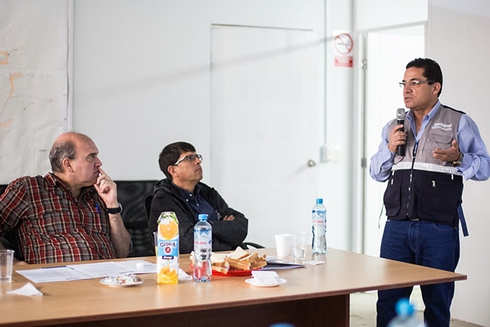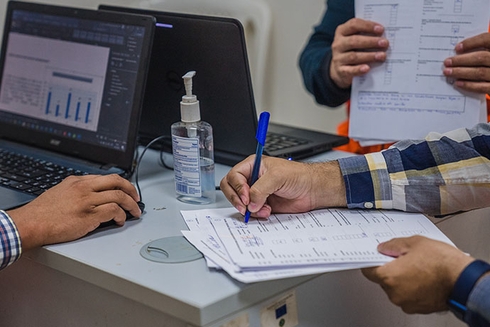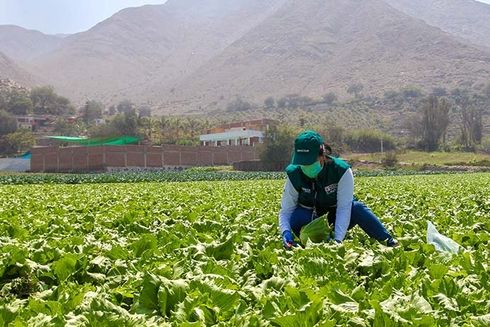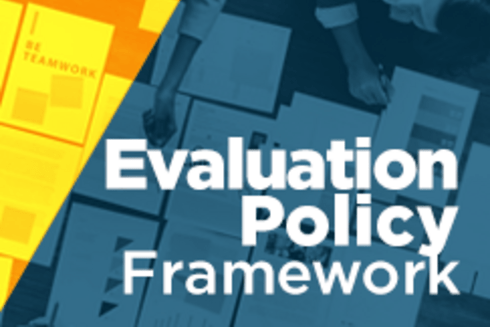Office of Evaluation and Oversight
Supporting development effectiveness at the IDB Group through rigorous evaluations.
The Office of Evaluation and Oversight (OVE) evaluates the performance and development effectiveness of the activities of the IDB Group. Through its evaluation work, OVE seeks to strengthen the IDB Group through learning, accountability, and transparency. OVE’s evaluations are disclosed to the public to share lessons learned with the region and the development community at large.

OVE undertakes independent and systematic evaluations of the IDB Group’s strategies, policies, programs, operations, activities, and systems. OVE reports directly to the IDB Group Boards of Executive Directors[1], who approve OVE’s work program and budget.
OVE reports its findings and recommendations to the IDB Group Boards, contributing to accountability for development results, promoting a culture of results and learning, and supporting the Boards’ institutional oversight.
[1] OVE reports directly to the IDB’s Board of Executive Directors. Since 2016, OVE has served the same function for the InterAmerican Investment Corporation (IIC, now IDB Invest), reporting directly to IDB Invest’s Board of Executive Directors.↵
Likewise, OVE:

As outlined in the IDB Group´s Evaluation Policy Framework adopted in 2019, OVE’s responsibilities include: (i) to undertake independent and systematic evaluations and oversight studies of IDB Group performance; (ii) to support the development of monitoring and evaluation systems and capacities within countries in the region; (iii) to disseminate findings and lessons arising from its evaluations; and (iv) to cooperate with other evaluation offices to identify best practices and share information.
The Evaluation Policy Framework describes the evaluation system´s objectives, guiding principles, roles, and responsibilities, among others.
The IDB Group´s Evaluation System
The evaluation system in the IDB Group is a shared responsibility among:
the Boards of Executive Directors of IDB and IDB Invest, the Office of Evaluation and Oversight (OVE), and the Management of IDB and IDB Invest
It comprises two complementary and mutually reinforcing parts: self-evaluation, conducted by IDB Group Management, and independent evaluation, conducted by OVE. This structure is similar to that of other Multilateral Development Banks.
The evaluation system helps ensure that the IDB Group effectively provides development results in the region.
Its objectives are to provide the basis for accountability to shareholders, foster learning, inform decision-making, and contribute to transparency through appropriate dissemination of evaluation findings.
The evaluation system follows six guiding principles:
(i) usefulness of evaluations, (ii) evaluability, (iii) use of internationally agreed standards, (iv) collaboration, (v) independence of the office of evaluation, and (vi) appropriate dissemination.

The principle of independence comprises four dimensions, in accordance with international best practices:

OVE seeks to provide accurate, constructive, and evidence-based information on the performance and development effectiveness of the activities of the IDB Group.
Every year, OVE presents a work program that summarizes the closing year’s work, describes planned evaluations and activities, outlines the proposed budget for the coming year, and provides an indicative list of evaluations for the following year. The work program and budget document cover evaluation activities carried out by OVE for both the IDB and IDB Invest. IDB Lab is included when applicable. Most of OVE’s evaluations jointly address activities of both the IDB and IDB Invest; a few evaluations focus on only one of the two organizations.
You can review the most recent Work Program for 2025-2026 approved by the Boards of Executive Directors, as well as a repository of all OVE's work programs.

Focus on the IDB Group’s own structure, strategies and policies, internal processes, and functioning. Corporate evaluations assess how these aspects affect the performance of the Bank and the development effectiveness of IDB Group’s work.
The annual validation of Management’s progress in implementing Board-endorsed recommendations using the IDB’s Recommendation Tracking System (ReTS) serves as an oversight report.

Following discussions with the Boards of Directors and IDB Group´s Management, OVE updated the OVE Country Product Protocol, revising the scope, approach, and processes for OVE country products.
Under the updated protocol OVE prepares two types of country-focused products: Independent Country Program Reviews (ICPR) and Extended Country Program Evaluations (XCPE).
ICPRs cover a single strategy period, focusing mainly on accountability, and their purpose is to provide the Board with useful information to consider the next Country Strategies (CS).
XCPEs cover two strategy periods, focusing on both accountability and learning, and their purpose is to provide both the Board and Management with an evaluation of the performance of the IDB Group in the country and recommendations to improve the future CS and program.

Perform a comprehensive analysis within a sector (e.g. education) or topic (e.g. crime) to extract lessons for future projects. They tend to have a broader scope, often building on the groundwork laid by project and country program evaluations. They provide in-depth analysis of IDB Group engagement and lessons of experience in a substantive area and provide recommendations on strategic directions. Sector and thematic evaluations foster understanding of challenges and good practices and seek to assess the results of the Group’s activities.

Generate lessons and recommendations for internal and external stakeholders by measuring the impact of individual or specific sets of projects. These evaluations assess IDB Group projects for their relevance, effectiveness, efficiency, and sustainability, and support most evaluation work, particularly at the country, sector, and thematic level.
The IDB Group Development Effectiveness Framework (DEF) underpins the project evaluation architecture. It has provided a system for self-reporting project results for sovereign-guaranteed (SG) projects through Project Completion Reports (PCRs) since 2014 and for non-sovereign guaranteed (NSG, or private sector) projects through Expanded Supervision Reports (XSRs) since 2015. OVE validates all PCRs and XSRs prepared by IDB and IDB Invest Management and reports annually on the results of the validation. Validated OVE ratings are used in the Development Effectiveness Overview report produced annually by the IDB Group.

The objective of this Protocol is to define the scope of the Office of Evaluation and Oversight's (OVE's) country products.

This document outlines and gathers the evaluation principles and the institutional arrangements that guide the evaluation system of the Inter-American Development Bank (IDB)

We also preview the 2023-2024 work program, approved by the Boards of Executive Directors of the Inter-American Development Bank (IDB) and IDB Invest.
Evaluation is critical for policy actors in LAC countries to deliver better policy results and strengthen accountability. OVE has a mandate to develop evaluation capacities across the region.
To that end, OVE developed an Evaluation Capacity Development (ECD) Strategy in 2020 that seeks to promote learning and strengthen evaluation capacities in LAC through an array of activities that include direct support to counties to strengthen their monitoring and evaluation systems, support for the creation and functioning of evaluation networks, and continuous support to the new version of the Centers for Learning on Evaluation and Results (CLEAR) initiative, the Global Evaluation Initiative (GEI).
The main activities carried out in 2022 were:
Participate in the public consultation to which you were invited (synchronic), as well as join the open public consultation (where you can participate at your own pace) in which, your technical and/or territorial knowledge, can add value to the process.
By integrating environmental and social considerations into project design, implementation, and monitoring, the framework aims to mitigate risks, enhance benefits, and promote sustainable outcomes for communities and ecosystems throughout the region.